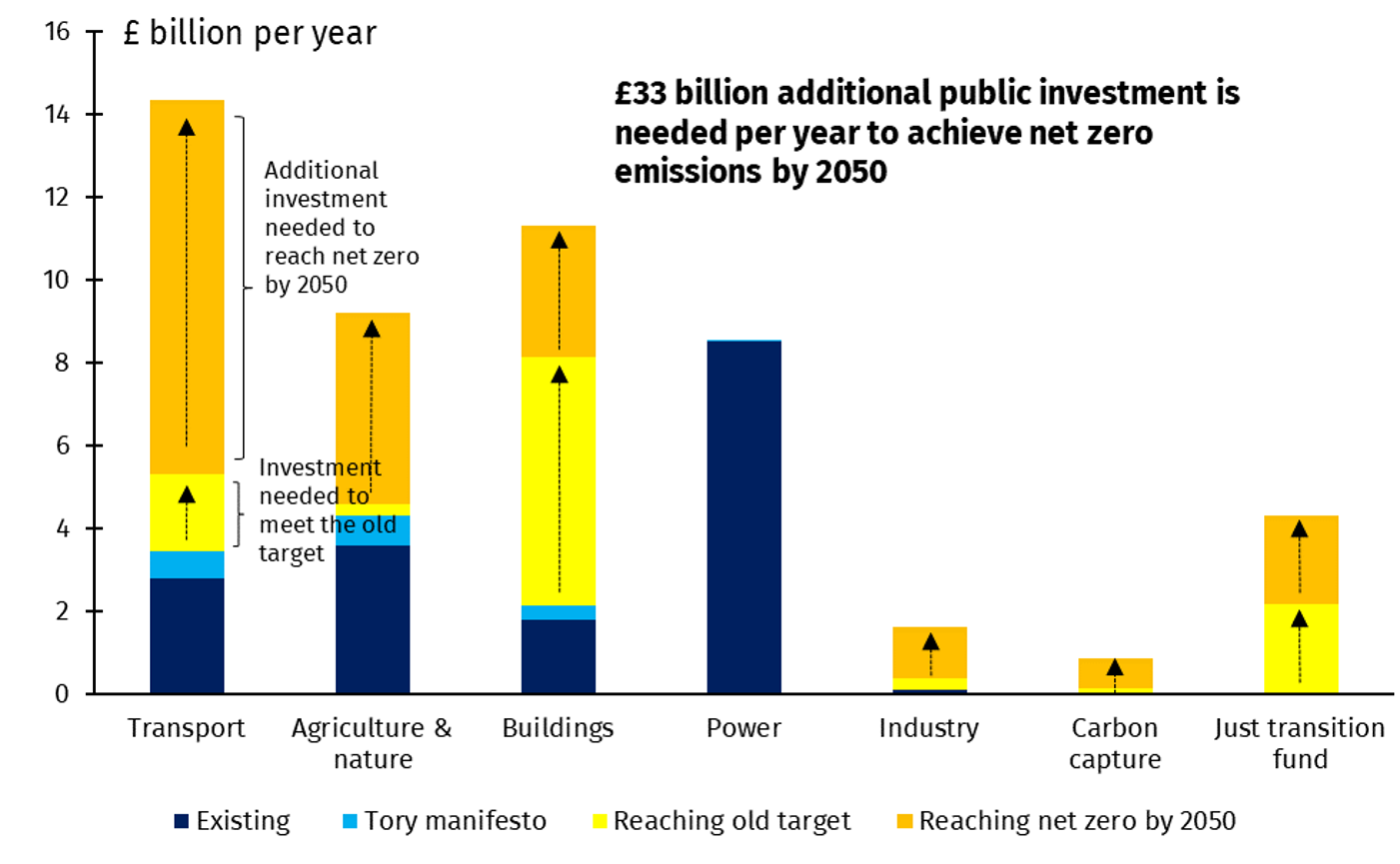Budget a “decisive shift” but falls short of what’s need to tackle climate crisis and inequality, says IPPR
11 Mar 2020Press Story
Leading researchers at IPPR, the progressive policy think tank, react to the Budget with comments on the climate crisis, spending levels, austerity and Universal Credit
On the Budget overall
Carys Roberts, IPPR Director, said:
“This Budget marks a decisive shift with the Conservative governments of the past 10 years. The levels of public spending and investment announced today are welcome but long overdue - and beg the question: why could this not have been done before?
“Millions of people have suffered from a decade of austerity and it will take more than one Budget to put right the damage that has been done to communities and local economies everywhere, or to solve the problems that have made the UK one of the most unequal countries in Europe.”
On measures to tackle the climate crisis
Luke Murphy, head of IPPR’s Environmental Justice Commission, said:
“The Chancellor said this would be a Budget for climate and nature but while there were some notable announcements, it still fell far short of what is needed.
“IPPR has estimated that £33 billion of additional public investment is needed every year in measures to meet the government’s net zero target and restore nature, but this budget committed far less than that.
“It seemed to put greater priority on high carbon infrastructure. Measures to increase tax on pollution and invest in low carbon transport are welcome, but freezing tax on fuel duty and committing £27 billion to roadbuilding does not set the UK on the path to tackling the climate crisis.”
“The government's legal commitment to net zero by 2050 means all new policies and investments must be climate safe - but this Budget failed that test.”
On the 2.8 per cent real terms increase in public spending, restoring it to pre-austerity levels
Carsten Jung, senior economist, said:
“The headline spending figures conceal that austerity may be over for some but is definitely not for others.
“Spending increases are concentrated in health, education and criminal justice. But local councils will continue to struggle to provide some of the basic services that people rely on. Their spending power per person is still far below their 2010 level.
“And Covid19-related spending increases on universal credit are a temporary boost for the welfare system. But after a decade of cuts, austerity is still being sorely felt by millions.”
On changes to Universal Credit rules to make it easier to access for people hit by the coronavirus crisis
Clare McNeil,Associate Director for Work and the Welfare State, said:
"We have been arguing for years that Universal Credit needs to be easier to access, immediately available and more generous. Why has it taken the coronavirus crisis for the government to realise that our social security system is not fit for purpose?
“We now need assurance that these changes will be maintained and built upon in the months and years to come."
ENDS
NOTES TO EDITORS
- Prior to the budget, IPPR published analysis for its Environmental Justice Commission which found that the government needs to invest a further £33 billion per year in order to meet their net zero carbon emissions by 2050 target. The analysis is available to view here: https://www.ippr.org/blog/budget-2020-level-up-the-economy-step-up-to-the-environmental-crisis

- An IPPR report from November last year revealed that Universal Credit has taken benefit payments to their lowest proportion of average earnings since 1948. The full Social (In)Security publication on reform of Universal Credit is available to download here: http://ippr.org/research/publications/social-insecurity
- The IPPR report There is an Alternative: Ending Austerity in the UK argued that ending austerity meant tackling four social deficits in care, skills, health and security. It is available to download here: https://www.ippr.org/research/publications/there-is-an-alternative-ending-austerity-in-the-uk
- IPPR is the UK’s pre-eminent progressive think tank. With more than 40 staff in offices in London, Manchester, Newcastle and Edinburgh, IPPR is Britain’s only national think tank with a truly national presence. www.ippr.org